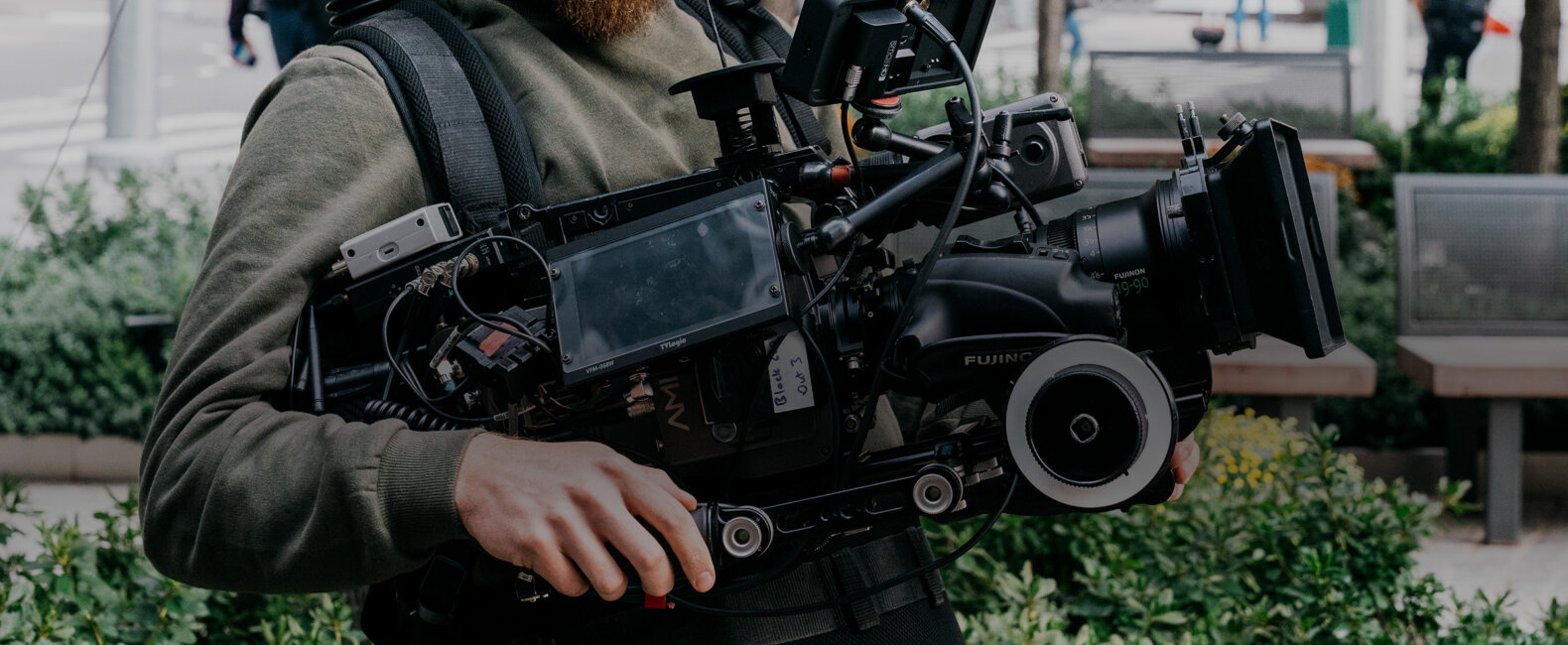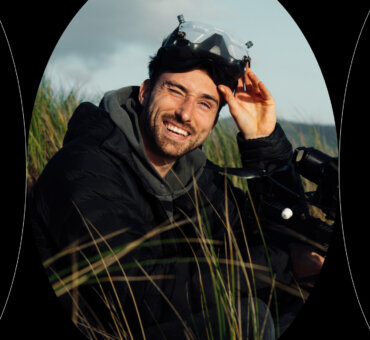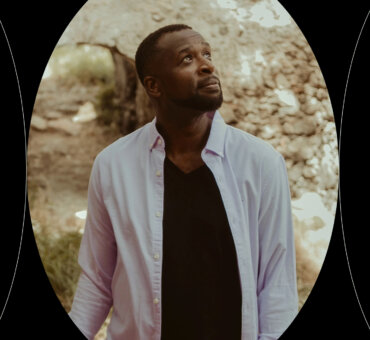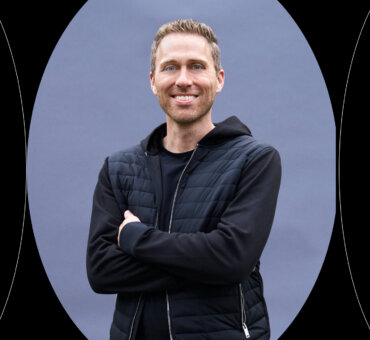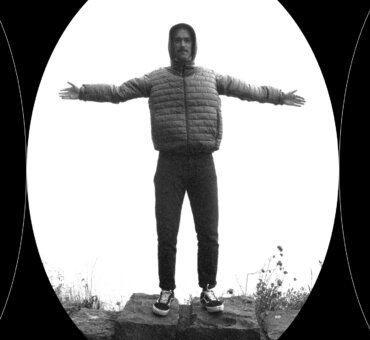We know, we know. It’s another “advice list.” But, we think this one is a little different because it’s filled with things that can actually make an impact on your life as a filmmaker. If you believe, as we do, that we’re never done learning, then, by all means, keep reading.
Below you’ll find our favorite bits of advice from the past year. We’ve had the privilege to talk to some very talented creatives — directors, producers, writers, actors — and they all had wisdom to share that we won’t soon forget. So, instead of having that third piece of pie, soak in some great lessons from some great filmmakers. Then eat the pie.
Director Evan Ari Kelman on Good Beginnings:
Well, a lot of things go into a good beginning. One strategy I use is immediately trying to capture the audience’s attention. Our film opens up with actual footage of a guy inside a burning building. That’s high adrenaline. That’s life-or-death stakes immediately. Within a split second, the audience wants to know what’s going on.
Mechanically speaking, that very exciting opening buys us interest. It buys us their interest for the several minutes of lower-stakes character development and nuanced moments with more subtle tensions that follow — like when a character walks into a room and everybody sees him for the first time after a life-altering event. I’m not sure that scene would be as interesting if you didn’t have that high-stakes opening. It’s a tool to hook the audience so they have nowhere to go. And, of course, it raises questions. Questions are a great way to open up a film — if they’re not cheap questions.
Director Ricky Staub on Tithing:
I call it “creative tithing” and it’s what made shooting The Cage possible. After every job, whether we made $1,000 or $100,000, we set aside 10%. If you do that 10 or 20 times over the course of a year or two, you’ll start to accumulate a pretty big nest egg. And that allows you to say, “That money is for nothing else but for us to make passion projects.”
Look for the heart of the piece. If there isn’t one, then it’s not a story worth telling.
Great Big Story’s Courtney Coupe
Great Big Story’s Courtney Coupe on Storytelling:
To get to the true element of any story, we rely on our North Stars. These are the things that surprise us, and they’re the things that inspire the way we ultimately produce a story. Everything that’s interesting about a story and everything that’s tied to the emotion in a story — those things are tied to “the why.” Look for the heart of the piece. If there isn’t one, then it’s not a story worth telling.
Director Zeek Earl on Listening:
As we approached each financier, we learned something new from them. I’m so glad that the first version of our script and our budget and our plan didn’t happen because I don’t think it would have done so well. It kept on getting rejected and we’d head back to the drawing board and sharpen it. It was rejected again and we sharpened it again. Each time we tried to learn something new, tried to ask as many questions as possible. We tried to get as many opinions as possible until the fourth variation — it was a much more realistic plan that we talked much more specifically about.
We’re living in a world where there’s this opportunity for self-making, self-identifying, self-describing; and I believe that same thing applies to the way we make films.
Director Garrett Bradley
Director Garrett Bradley on Ethics and Originality:
We’re living in a world where there’s this opportunity for self-making, self-identifying, self-describing; and I believe that same thing applies to the way we make films. The way we make art. We don’t have to limit ourselves to genres or categories. The fundamental nature of this work is the process. The ethics. The ways we work with other people. When you are framing a person or a community which exists in the world, there is, in my opinion, a set of criteria a filmmaker must keep in mind which maintains alignment with what is simply fair. Fair to those allowing you into their lives and fair to the audiences watching the film. Beyond that, I don’t think you need to worry much about labels. And that opens doors creatively. The more we can experiment with that idea, the more our culture will be reflected in the work, and the more our work will outlast us.
Director Tom Levinge on Strong Characters:
You have to have a strong point of view. Strong characters always have a very specific way of seeing the world. But that outlook has to be justified in some way. A justified point of view drives the story forward.
Sherpas Cinema’s Mitchell Scott on Not Overthinking:
We like to tell stories that aren’t forced. Stories that are just sort of there. Our goal is to get out of the way of the story and let it tell itself as much as possible. Then we try to support it with amazing imagery and a structure that’s not too complicated or trying too hard. We never want to look like we’re trying too hard even though, of course, we’re always trying our hardest. We’re always trying to make something better than the last time because we believe in this work so much. We think cinema that brings people closer to the natural world is extremely powerful and important. It doesn’t have to be complicated.
Director Paul Hairston on Doubt:
We went into this piece with themes and ideas only — no details. That was a first for me — a neurotic and often overprepared filmmaker. However, if you doubt yourself every time a story doesn’t work out the way you wanted it to, you’ll never be able to approach any given project and come out on the other side with your sanity intact. So, in the future, I’ll plan on my plans changing, and hopefully, I’ll be more comfortable with that idea.
Producer Lindsey Hagen on Depth:
Honestly, sometimes it’s frustrating to make films that are objective-based. Coming from an action-sports background, there’s a high likelihood of falling into that category. It almost robs you of the deeper story and the deeper meaning, because we have these human stories that are much more profound than just an objective on a mountain. I think by not being able to fill our objective, we were actually able to tap into that story.
I’ve worked in factories, on road construction, behind bars, sold fruit roadside, counted screws in factories. I guess it just opens a perspective into other worlds, which you really don’t get from studying someone else’s films.
Director Dan Sadgrove
Director Dan Sadgrove on Getting Out There:
I always go back to this quote by Warner Herzog. He says, “filmmaking — like great literature — must have experience of life at its foundation.” Go walk on foot, learn crafts and trades. Get away from the cinema completely. All of my films are based on my experiences in life, so I think studying filmmaking didn’t do as much as being out in the world. The way I work — I’m not really sure about other filmmakers — but I get most of my ideas from just exploring. I’ve had a million different jobs. I’ve worked in factories, on road construction, behind bars, sold fruit roadside, counted screws in factories. I guess it just opens a perspective into other worlds, which you really don’t get from studying someone else’s films.
Director Tucker Bliss on Honesty:
I want people to smile, of course, but it should always feel honest. It should feel relatable. If you can do that — even when the piece is absurdist and weird — it can still strike a chord.
Director Lindsay Branham on Connecting With an Audience:
When you’re making a film, you’re always thinking about who your audience is. When your audience is the local community, then everything about the creative process is crafted in such a way for it to move them. So, that comes down to, what story do we tell? How do we tell it? Obviously, it has to be accurate, or else it won’t feel real to them. So, we need to involve people from the community, creatives from the community, create in collaboration with them. It takes it out of the realm of, “What do I think about this place and how can I repackage it?” to a story that people in that place, in that community will resonate with.
Producer Rand Getlin on Truth:
I used to have these high-level conversations with industry folks about objectivity, what is “capital J” journalism? At the end of the day, for me, it’s really simple. Tell the truth. And be thoughtful about the way you tell that truth. That’s it. As long as you’re being objective in that regard, and you’re sharing information that people are interested in, then you’re fulfilling one of the core tenets of what I understand journalism to be.
I think what’s unique about every filmmaker is the experiences we’ve had. That’s where our voices come from.
Director Charlotte Regan
Director Charlotte Regan on Experience:
I kind of feel like I’m better at writing stories that are my own and stories that I can connect with. At the minute, the stories I’m willing to tell are all based on experiences I’ve had or characters that I know really well. Well enough that I feel like I can write about them. That’s all it is, really.
For me, if I don’t know the characters, I don’t really know the voices in the script. If I don’t know the characters, they just all read the same. They all read as if it’s me speaking. I think what’s unique about every filmmaker is the experiences we’ve had. That’s where our voices come from. Trying to hone in on that and tell something you know, I think, will only make your work better.
Director Henry Busby on Slowing Down:
My tendency, and I think a lot of people share this tendency, is that when they reach that “plain of nothingness” they want to fill that space back up. Go immediately and find the next mountain, the next thing to climb. So, what I’ve actually been doing this year is learning to slow down and explore that desert space a little bit, if that makes sense. Instead of forcing myself to write out a plan for what’s next, I’m trying to slow down and be as quiet as possible, so whatever desires I have will float up from below, instead of me trying to discover them out in the wilderness. It’s the difference between hunting and fishing if you know what I mean.
Director/Actor/Writer Jim Cummings on Cast/Crew:
Now, any time I’m bringing on a cast or crew member, it’s not about their credentials. It’s their talent and enthusiasm. Those are the only two hiring requirements. It doesn’t matter how long your IMDB page is. If this movie really means something to them, they’re hired. Everybody on set was like that. Everyone had lost somebody or wanted to make something about this character going through hell.
Director David Altrogge on Teamwork:
I wish I was an auteur. I wish I was Martin Scorsese or Stanley Kubrick — someone who can just know what’s right and go with their gut. But I’m not that kind of filmmaker, and most other filmmakers aren’t either. So find a team of people you trust, people who are smarter than you, and build this collaborative environment. It’s only going to make your films better, which is why we got into this thing in the first place.















































































